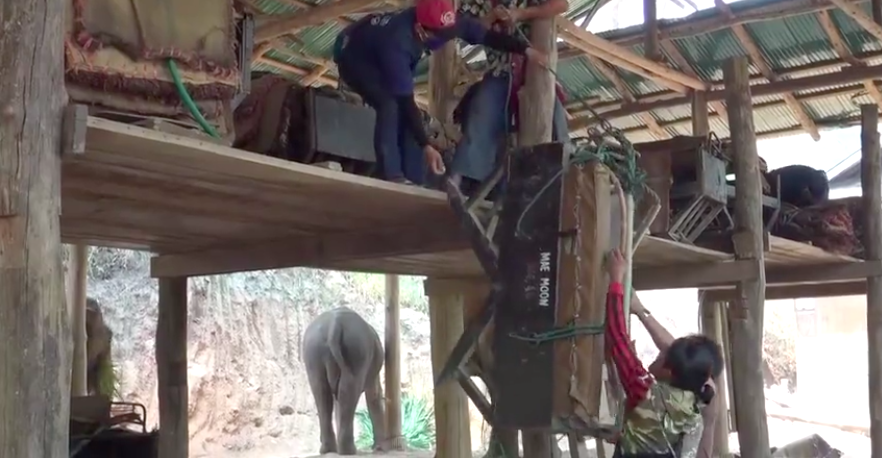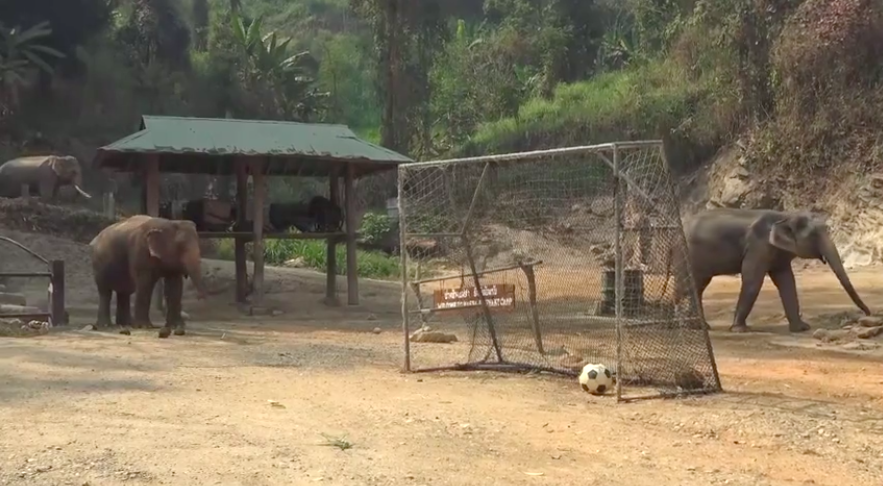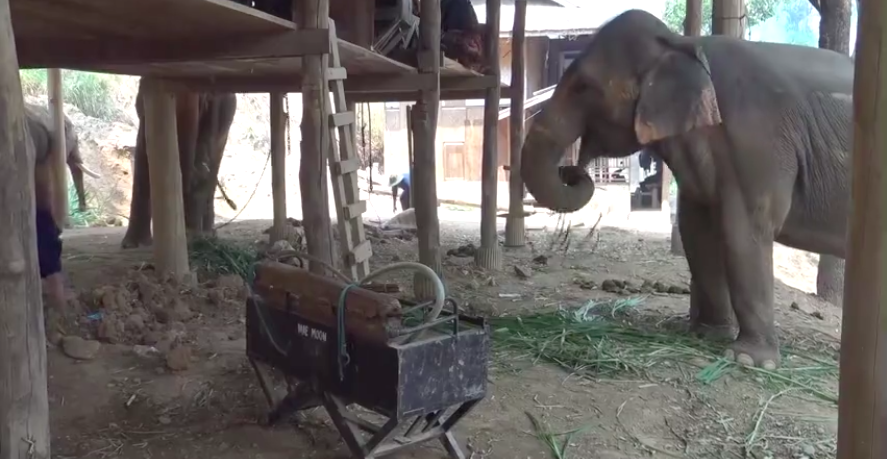In Thailand, as various businesses and tourism see a decline due to the global COVID-19 pandemic, animals held in captivity seem to have new-found hope and freedom amid the crisis.
Dozens of elephants at the Maesa Elephant Camp in Chiang Mai, northern Thailand, were “set free” by owners who decided to remove the wooden chairs strapped to their backs. As they closed their doors to all visitors due to the coronavirus outbreak, these jumbos finally got their much-needed break from carrying and giving tourists a ride.

Following the closure of the camp, it was announced that its 78 elephants will never have to wear the wooden carriages again once it reopens—allowing the animals to freely roam around the campground and operate as a place where visitors can observe them in their natural habitat.
The elephants at the Maesa have been giving rides to tourists for 44 years and Camp director Anchalee Kalampichit shared that this will be the first time that the elephants will not be wearing the seats at the start of the day.

“Since we entered the business in 1976, riding on the elephants has always been the favourite activity of tourists,” she said.
“But because the coronavirus has spread there have been fewer tourists and eventually the government ordered us to close so we have removed the chairs to liberate the elephants.
“We are not planning to put the seat supports back on the elephants, even if we can operate again. We want to change the style of the place and find more natural ways that the public can enjoy the elephants.
“We will welcome tourists to enjoy learning about the elephants’ ways of life naturally instead of using them to entertain the tourists.”

“The cost for taking care of the 78 elephants and 300 staff is five million baht (around Php 7.8 million) per month. So for now, we have to bear that expense without income from tourists.
“But we will not leave anyone behind and will try to take the best care of the elephants for as long as we can. Now we are planting vegetables for the staff to eat as one of the ways we can reduce the expenses.”


